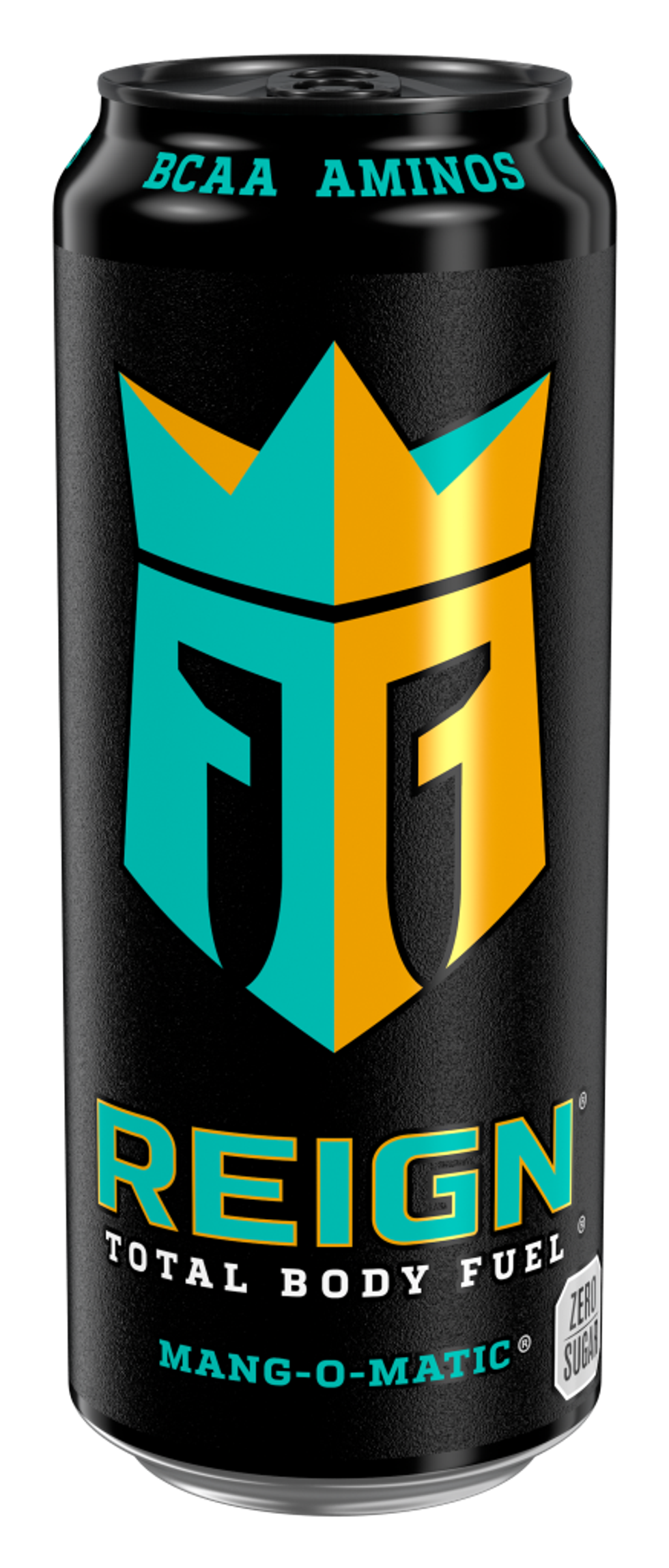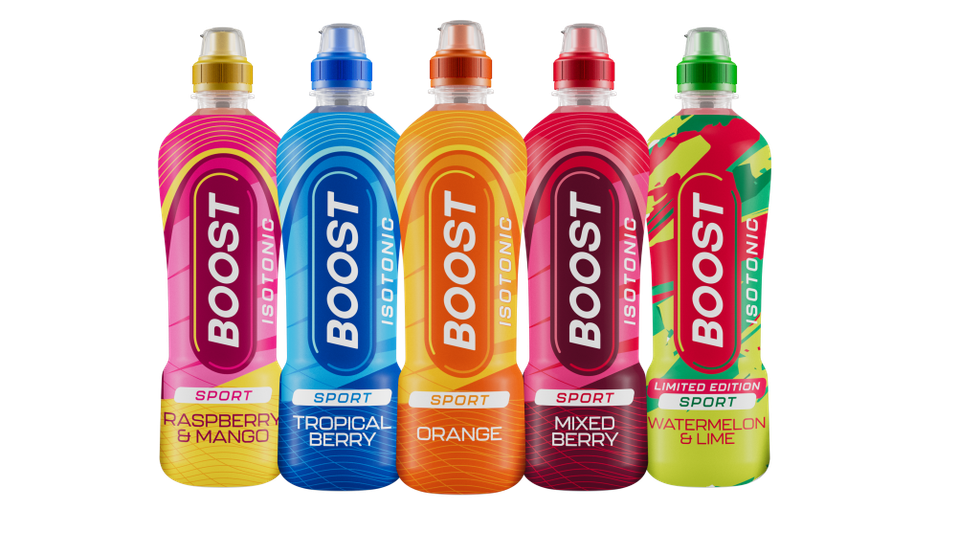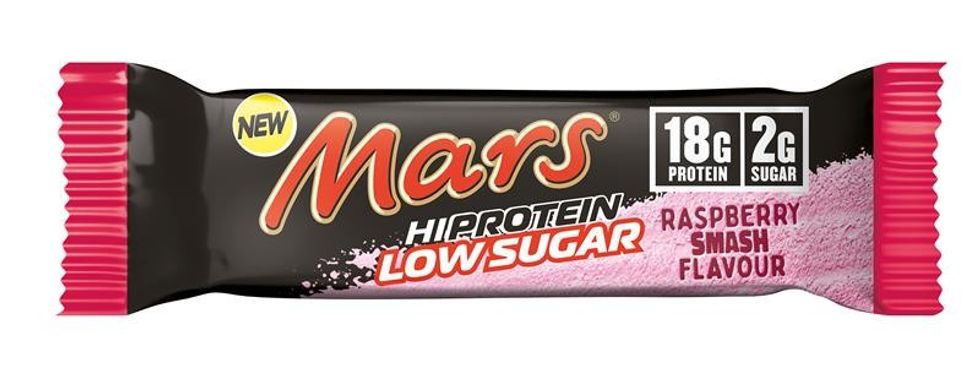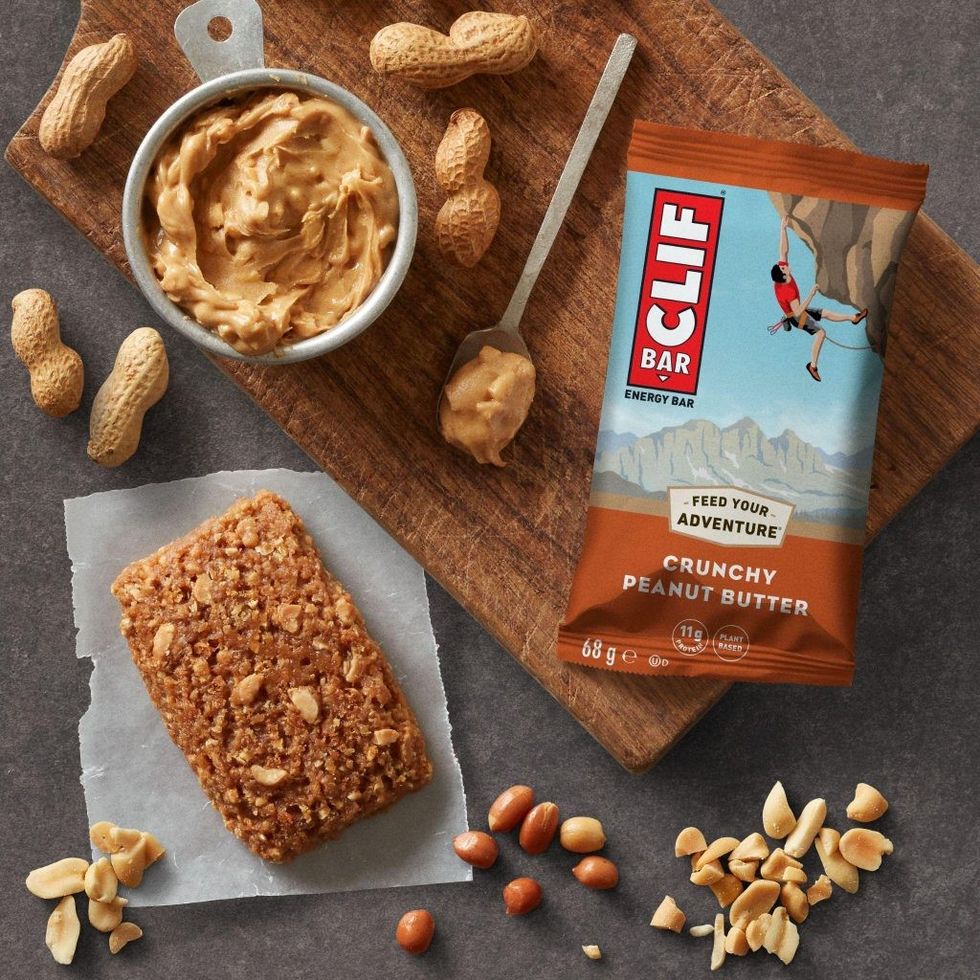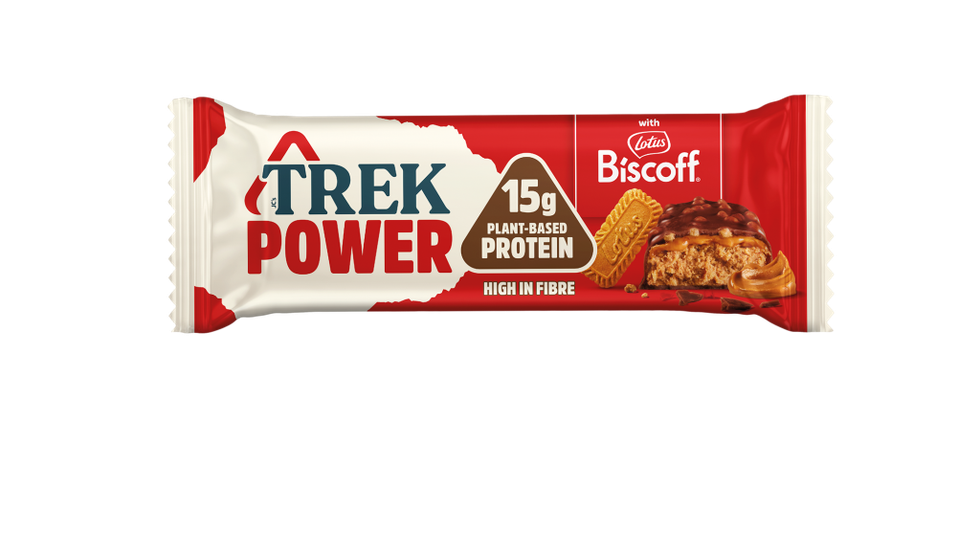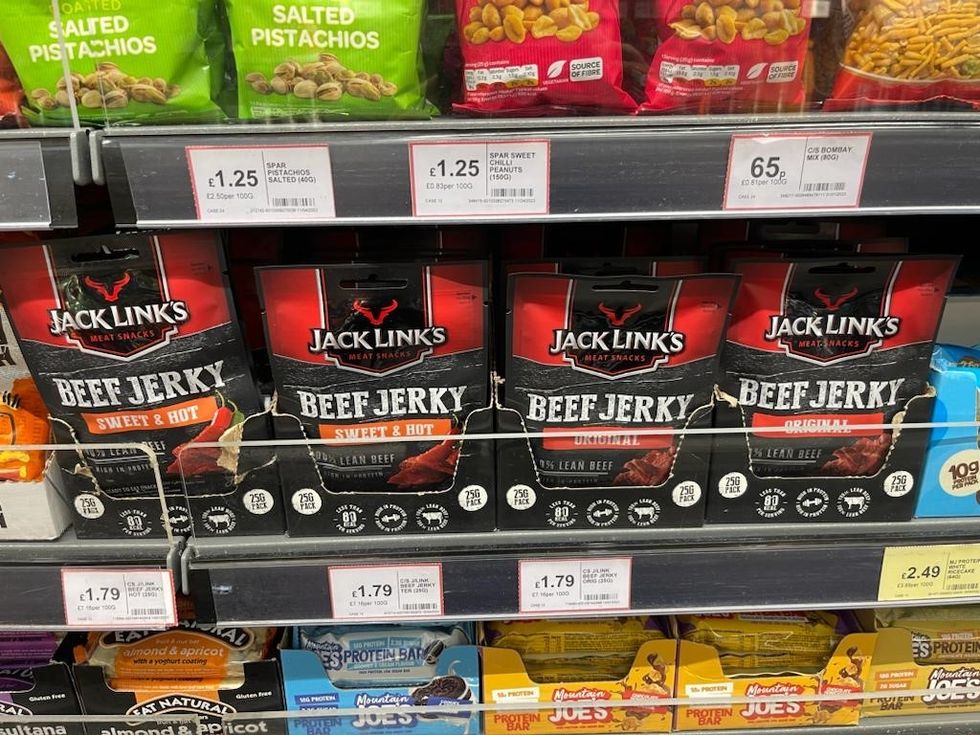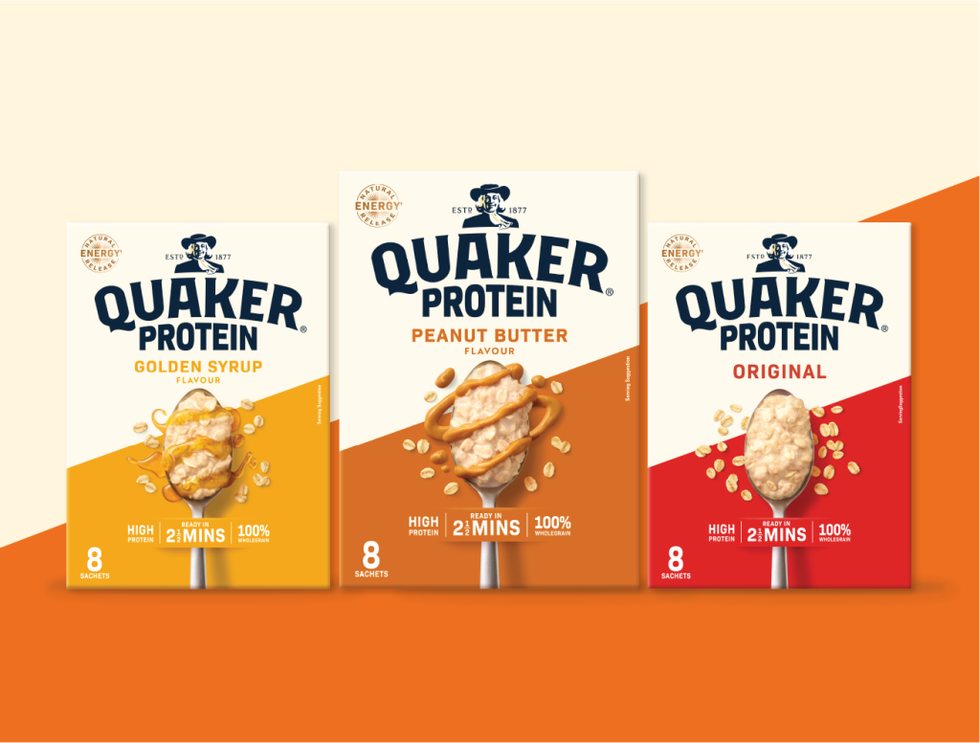With an ever-increasing range of protein and sports products on the shelves, it’s time to freshen up thinking about performance drinks and snacks
In recent years, the demand for sports and protein products has surged as more individuals prioritise health and fitness. For many, these items are not just commodities but essential components of their active lifestyles. Amidst this trend, local convenience stores have a significant opportunity to capitalise on this burgeoning market. By strategically curating and promoting sports and protein products, convenience stores can not only meet the needs of health-conscious consumers but also elevate their sales revenue.
Before delving into strategies, it's crucial to comprehend the market dynamics. The fitness industry has witnessed exponential growth, with people of all ages embracing physical activities and nutrition-conscious lifestyles. From gym-goers to casual athletes, there's a diverse consumer base seeking convenient access to sports drinks, protein bars, supplements, and more. Recognising this demand is the first step towards maximising sales potential.
The “UK Attitudes towards Sports Nutrition Market Report 2024” by Mintel identifies a growing demand for a wider range of natural sports nutrition products, echoing the strong interest in naturalness in food and drink generally amid a backdrop of media focus on ultra processed foods. The report, which estimates the value of the sports nutrition market at £198 million in 2023, found half of the consumers agreeing that a wider range of natural sports nutrition products would be appealing.
Functional in demand
“Many are looking for drinks with added benefits to fuel them during their workout, which is why performance energy drinks are growing in popularity,” Amy Burgess, senior trade communications manager at Coca-Cola Europacific Partners (CCEP), comments, adding that their Reign Total Body Fuel is leading the way in the market.
It contains 200mg of naturally-sourced caffeine, with a recipe enriched with branched-chain amino acids (BCAAs), and Vitamins B3, B6 and B12, which may contribute to the reduction of tiredness and fatigue to a normal energy-yielding metabolism.
“Just like the wider energy drinks category, consumers are looking for options that deliver on taste as well as functional benefits,” Burgess notes, as she highlighted the launch last year of Reign Mang-o-matic, “tapping into the popularity of Mango-flavoured drinks – especially given the popularity of the tasty mango-flavoured variants in the Monster Energy range.”
Chris Smith, partner brand manager at World of Sweets, which has recently entered into an exclusive distribution partnership with leading direct to consumer energy drink Sneak Energy, also highlights the growing demand for functional drinks.
“Energy drinks are becoming increasingly popular with young adults and these generations are also becoming more aware of what they’re putting into their body,” he says. “11 million Gen Z and Millennials are regularly buying energy drinks and five million of those are looking for cleaner, benefit-driven and functional energy drinks.”
Sneak was launched in 2018 in the UK and US, shipping over a million orders and growing to become a popular online energy drink brand in the UK.
The brand prides itself on its natural clean energy, with natural caffeine, zero sugar with no hidden nasties – no added preservatives, no refined sugars, no artificial colour and no artificial flavours. Instead, the drinks contain natural caffeine, zero sugar, taurine, ginseng, choline and carnitine plus added B vitamins.
World of Sweets will be stocking Sneak’s range of 500ml energy drinks including Tropikilla, Purple Storm, Raspberry Lemonade and Blizzard Lemonade.
“We’re thrilled to now be able to offer the Sneak Energy range to retailers to help them get started in the sports category,” Smith says. “The brand’s already strong audience is highly engaged on its social channels with limited products selling out fast. They also have over 500,000 website visits per month. This is great news for retailers – an in-demand product will see customers heading to store.”
Sneak originated from and is popular within the gaming community. In 2022 the number of gamers in the UK was around 39.9 million with the market valued at £8.16 billion. The brand is now working with World of Sweets to expand their audience reach.
To complement the eye-catching can design, retailers will be able to activate Sneak-branded point of sale, including chiller fixture branding, window posters, branded chillers and off shelf FSDUs, to drive impulse purchases in the chiller fixture and off shelf.
Taste and value
Despite the challenges of the past three years, with various lockdowns and restrictions impacting the sports drinks sector, Adrian Hipkiss, commercial director at Boost Drinks, observes that there has “not only been a return to pre-pandemic normality, but a rapid rate of sales in the category”.
Data from market research firm Circana has shown that sports drinks have become the second fastest growing category within soft drinks in the convenience channel, with a 57 per cent value growth YoY.
“Boost Sport takes pride in its strong positioning within the sports drinks category. Sitting at the forefront of the category’s growth pattern with its 41 per cent value growth YOY, Boost Sport is currently the #2 sports drink brand in volume,” Hipkiss says.
Boost launched a limited-edition Raspberry & Mango variant into their isotonic sport drink range in April last year and the company has decided to permanently incorporate this flavour into its core range following the new product exceeding forecasted figures by an impressive 170 per cent.
“With mixed fruits and tropical flavour profiles accounting for over 60 per cent of category growth the combination provided a guaranteed way for Boost to shake up the sports category in an exciting and unique way,” Hipkiss says.
“Limited edition drinks have been shown to demand consumer attention, create noise and generate excitement within the category. With creative flavour innovations such as Raspberry & Mango surging in popularity, retailers should cash in on the trend to ensure they’re maximising on consumer demand.”
Alongside the trend in flavour innovations, Boost's sport portfolio stands out with its dynamic and vibrant packaging, effectively seizing consumers' attention and motivating them to purchase the product.
Last month, Boost Drinks announced the launch of its dynamic brand refresh, with eye-catching new packaging that leaps off the shelf. The revised pack designs, which represent a strategic culmination of extensive consumer insight and research, are poised to redefine the consumer experience whilst continuing to hero Boost’s great value proposition.
The brand’s iconic lozenge logo remains but now enjoys a subtle modern twist – a streamlined design approach that gives each product a slicker and more refined look.
Retailers and customers alike will witness a new Boost brand design and proposition in 2024, backed by a roll-out of fresh new product development across the brand’s energy and sport categories, supported by the integrated campaign ‘There’s a Boost For That’.
The campaign will see a huge investment from the brand with a 360-marketing strategy covering trade and consumer with both above the line and below the line support. A multi-channel approach will see the revised brand identity and messaging rolled out across a wide variety of online and out of home formats.
Protein treats
The UK protein bar market continues to go from strength to strength, with value and unit sales increasing by 14 per cent and 9 per cent respectively, in a market now worth £151.7m (IRI).
Mars Chocolate Drinks & Treats is positioning its Snickers brand to drive significant category penetration, with the strength of its iconic taste and familiarity, now in a low sugar format.
“Although the protein bar market is growing, take home penetration figures over the past 12 months show a relatively flat scenario at an average of 5.1 per cent,” notes Michelle Frost, general manager at Mars Chocolate Drinks & Treats.
“Even with notable launches to the market, they have not attracted significant numbers of new consumers. We believe that with our world-renowned trusted Snickers brand, coupled with 20g protein and only 2g sugar, we have the potential to significantly drive category penetration across both major multiples and impulse channels.”
Frost says they continue to see innovation, taste, trust, and convenience drive growth in the protein category.
“Consumers are seeking more new and exciting variants of protein products. Our Mars and Snickers Hi Protein Low Sugar not only provide brand recognition and unmatched familiarity with a trusted taste but also serve as an on-the-go treat with added protein ensuring consumers can enjoy a nutritious snack anytime and anywhere,” she says.
Mars Chocolate and Drinks and Treats has expanded its range of Mars branded protein products, with the launch of Snickers Hi Protein Low Sugar, Snickers Hi Protein Low Sugar White and Mars Hi Protein Low Sugar Raspberry Smash flavour protein bar.
Snickers Hi Protein Low Sugar (217 kcals) and Snickers Hi Protein Low Sugar White (218 kcals) boast all the caramel, nougat, and peanut flavours consumers know and love from the iconic Snickers bar, both with 20g of protein and only 2g sugar.
Featuring a light and fluffy raspberry flavoured pink nougat and a creamy layer of caramel, the latest addition to the low sugar range, Mars Hi Protein Low Sugar Raspberry Smash, boasts 18g protein and only 2g sugar.
Mars Hi Protein Low Sugar Salted Caramel is a sweet and salty flavoured addition to the low sugar range, offering 18g of protein and only 2g sugar, combined with the unmistakable taste of Mars chocolate.
Chris Smith, of World of Sweets, notes that snacking and bars are becoming more popular in the protein category, with one in three wellness proactives and consumers purchasing bars weekly or more often.
World of Sweets is the official UK distributor of popular US brand Clif, owned by Mondelēz International.
“Clif will allow retailers to grow in this category as well as giving them the chance to offer their customers a new and exciting product from the US,” Smith says.
The brand is committed to using sustainable ingredients made with renewable energy while aspiring to use eco-friendly packaging and deliver by transportation that doesn’t pollute.
“Their iconic Clif Bar energy bar is the ultimate energy bar for young adults, purposefully crafted with a blend of plant-based ingredients to help keep them moving,” Smith comments. “The delicious blend of plant-based protein, fat and carbohydrates with phosphorus provides a good source of both protein and fibre, keeping energy levels up and providing nutrition that customers can feel good about.”
The energy bar comes in six tempting flavours each containing 9-11g of plant-based protein and made with wholesome and nutritious ingredients.
Clif Bar flavours include Chocolate Chip, White Chocolate Macadamia Nut, Crunchy Peanut Butter, Blueberry Almond Crisp, Peanut Butter Banana with Dark Chocolate and Chocolate Almond Fudge.
The Clif Bloks Energy Chews are designed for athletes, as an easy-to-chew source of quickly absorbed carbohydrates that deliver carbohydrates for fast fuel to maintain optimal performance levels. The range comes in caffeinated and non-caffeinated varieties with flavours including Strawberry, Mountain Berry, Tropical Punch and Black Cherry.
Clif Bar was created by Gary Erickson who couldn’t face another unappetising energy bar on the long-distance bike rides he took part in. He created the bars with his mum in her kitchen and named them after his father Clifford.
First launched in 1992, the brand has gone on to become the number one energy bar in the US and a global brand worth $1.5 billion.
World of Sweets offers branded POS for retailers including FSDUs, CDUs and shelf-edge branding.
Trek claims it is shaking up the protein category with the launch of Trek Power Biscoff protein bars – the only protein bar to contain 100 per cent real Biscoff, and the new addition is Trek’s biggest launch to date. Trek Power Biscoff combines the brand power and mass appeal of the iconic Biscoff brand, with the growing consumer demand for delicious yet functional protein bars.
The innovation comes at a time of exceptional growth for Trek, one of the UK’s fastest growing cereal bar brands, growing 20.4 per cent and delivering £4.6m RSV year-on-year.
Trek is a protein brand at heart, with protein the prevailing functional benefit trend among shoppers today – and the most requested new protein bar launch amongst consumers is Biscoff. With 81 per cent brand awareness, Biscoff is one of the most distinctive UK brands, and this unique collaboration with the protein-packed Trek Power bar is expected to recruit new shoppers to the category, as well as drive excitement with existing customers.
“We have seen a surge in demand from consumers on social media calling out for a Biscoff innovation in the protein space and we’re proud to be the ones to deliver this,” said Alice Boardman, senior brand manager at Natural Balance Foods. “The launch combines the love and awareness of the iconic Biscoff brand, with the prevailing trend of protein, wrapped up in a vegan, 100 per cent plant-based bar from Trek.
“Consumer research has shown us that 84 per cent of those surveyed said they would buy a Trek Power Biscoff bar, and it is the number one most desired new bar amongst respondents. The Trek Power Biscoff bar is perfect for those looking for natural energy from an indulgent protein-packed filling snack, which is why we’re confident this launch will help drive incremental growth in the category and create buzz amongst protein-lovers, Biscoff fans and daily-snackers alike. The Biscoff protein bar is available in the convenience channel in a single format, perfect for consumers on-the-go.”
Each single bar (55g) comes packed with 15g plant-based protein, coated in a rich vegan chocolate alternative, and filled with a generous layer of 100 per cent authentic Biscoff spread.
The Protein Ball Co has kicked off the new year with the launch of two new vegan flavours, alongside a full brand refresh.
The Protein Ball Co’s new Choc Chip Muffin and Salted Caramel protein + vitamin balls joined the seven-strong range of 100 per cent natural, gluten-free, no-added-sugar snacks, on-the-go treats for health-conscious customers.
The launch coincides with the brand refresh, with 45g packs now sporting a more mature look that shows an image of the protein ball on the front, alongside clearer labelling.
“We are excited to be introducing two fantastic new flavours to our popular range of protein + vitamin balls that are designed for consumers with specific health goals in mind, but who also have a sweet tooth,” said founder Matt Hunt.
The new Salted Caramel flavour is the ultimate treat. Containing 8g plant protein per pack, they are made using thick roasted nut butter, sweet dates, pink Himalayan salt, and a dusting of almond nibs for extra crunch.
Choc Chip Muffin is a tasty blend of rich cacao nibs, velvety peanut butter and wholesome gluten-free oats. The cake-inspired bites have 9g of plant protein per pack, giving consumers a nutrition-packed alternative to high sugar snacks.
“Our range is designed to suit busy lifestyles and these new protein balls are high in fibre and provide an excellent source of slow release energy to help bridge the gap between meals,” said Hunt.
The two new flavours have been crafted using the finest possible ingredients with added vitamins B12, C and D3. Each 45g bag will contain six protein balls.
Meat snacking opportunity
As many shoppers see meat protein snacks as the best source of protein to give them energy for the whole day, Shaun Whelan, Jack Link’s convenience/wholesale and OOH controller said the brand presents itself as a good alternative to traditional crisps.
“The opportunity to unlock additional sales is huge. The jerky and biltong meat category has nearly doubled in value over the last five years and has the headroom to double again as still less than one in ten households buy it. High protein meat snacks is a high growth opportunity retailers cannot afford to miss,” he says.
Whelan adds that the strong category growth has been led by Jack Link’s which has more than tripled retail sales value over the last five years. In the last year Jack Link’s has grown sales and volume, and the brand has recently undergone a packaging re-design to meet the key drivers for meat snacks.
“The new packaging redesigns are modern, promote the high-quality aspect of the product and reflect category trends in craftmanship and functional nutrition benefits,” Whelan says.
As a 100% lean beef, ready to eat snack, Jack Link’s is high in protein, naturally lean, low in calories (below 70 calories in every 25g serving), and low in fat.
Jack Link’s Beef Jerky and Jack Link’s Biltong are pure, unadulterated snacks made with 100% lean beef, seasoned dried and smoked slowly, following a traditional recipe. Both products are packed with protein, offering a long-lasting energy release.
Jack Link’s is well placed to drive category growth by investing £1.5million on an annual basis into media, and sampling at festivals and gaming events.
“We are increasing category awareness and as a result have been performing phenomenally well,” Whelan says.
“Total sales for the jerky and biltong meat snacks category are growing strongly over the last 12 months with Jack Link’s driving that growth. This high growth may surprise many, but it is driven by more shoppers buying into the category who are willing to pay for the high protein benefits from brands they trust.
“Jack Link’s is a high protein, high growth, high retailer profit opportunity.”
Across the aisles
In addition to drinks, snack bars, meat products, foods and nutrition of all kinds boasting extra protein have become resoundingly popular.
Last month, Quaker Oats expanded its protein range with the introduction of a new Peanut Butter flavour, which it said will help retailers cater to the consumer demand for protein as a nutrient that can support everyday wellbeing.
“Protein porridge is undergoing a huge perception change. Having become more mainstream, it’s no longer just for shoppers looking to improve their athletic performance – protein porridge is for the everyday consumer who wants to support their overall health and wellbeing,” said Divesh Parmar, Quaker UK general manager at PepsiCo.
“As the number one brand within hot cereals, we’re in a strong position to add more excitement to the segment and support shoppers in leading active lifestyles through our NPD.”
Available in sachets (8x per carton) with an RRP of £3.50 per pack of sachets, the NPD will roll out across convenience channels from June. Quaker will support the launch of its Protein range restage and NPD with a marketing campaign, including online media, in-store shopper support and sampling in September.
Taste is the primary driver of brand choice within breakfast cereals, and peanut butter already serves as a popular accompaniment to meals like porridge for consumers looking for high protein breakfast options. The launch of Quaker Protein Peanut Butter is expected to not only attract younger consumers to the market, but also leverage the familiarity of the flavour pairing and help shoppers increase their protein consumption in one easy step.
Meanwhile, Warburtons has gone for protein with plant-based bagel thins.
Warburtons Protein Thin Bagels are baked using a blend of seeds and pulses, which are a naturally good source of plant-based protein – 8g in every bagel! Soft & Sliced for convenience, they are delicious eaten toasted or untoasted.
“Consumers are actively searching for ways to get more protein into their diets – with ‘high in protein’ being the most important health quality in food for Under 35s,” said Carl Pickett, category development controller at Warburtons.
“Demand for protein products has exploded in several categories and bakery is no different – Warburtons Protein Thin Bagels have grown over 30 per cent vs. last year, now making it the number-one thin bagel product in the market [NielsenIQ, 4w/e 23.03.24] with its high protein content adding to the taste and quality that you’d expect from Warburtons.”
Jimmy’s Iced Coffee is helping retailers answer consumer demand for on-the-go protein beverages, with the launch of its brand-new collaboration with Myprotein. Available in Original and Caramel flavours, Jimmy’s Myprotein Iced Coffee contains protein enriched milk and boasts 5.6g of protein per 100ml, as well as being HFSS-compliant.
The brand said the launch is set to help retailers tap into the UK protein market, which is estimated to reach over £438m in 2024. In fact, the global ready-to-drink (RTD) protein beverages market was valued at $1.56 billion in 2023, meaning there is significant opportunity for retailers to drive footfall in store and maximise sales with a RTD protein drink solution.
“We know that shoppers have been on the hunt for on-the-go protein beverages for a while now,” said Ben Parker, Britvic’s retail commercial director in Great Britain.
“So, collaborating with Myprotein to bring together the rising protein trend and the popularity of RTD coffee is set to tick numerous boxes for consumers. The Jimmy’s Myprotein Iced Coffee will appeal to those looking to incorporate more protein into their diet. The collaboration presents a huge opportunity for retailers to expand their RTD iced coffee range, appeal to new shoppers and increase basket spend.”
In March, Gold Standard Nutrition launched healthy high protein Sweet & Sour pot, the most requested flavour from this ambitious challenger brand’s healthier living community and a recipe that offers tang and crunch but in a high protein/low saturated fat style.
“These are very exciting times for our flourishing healthier meals business, marrying classic flavours with unrivalled nutritional integrity,” said GSN founder Craig Allen.
Incorporating sports and protein products into the retail strategy of local convenience stores presents a lucrative opportunity to cater to the growing demand for health-oriented goods. By implementing a combination of targeted marketing, strategic product placement, and customer-centric initiatives, convenience retailers can not only boost sales but also establish themselves as go-to destinations for fitness enthusiasts.
As consumer preferences continue to evolve, staying responsive and innovative will be key to sustained success in this thriving market.






